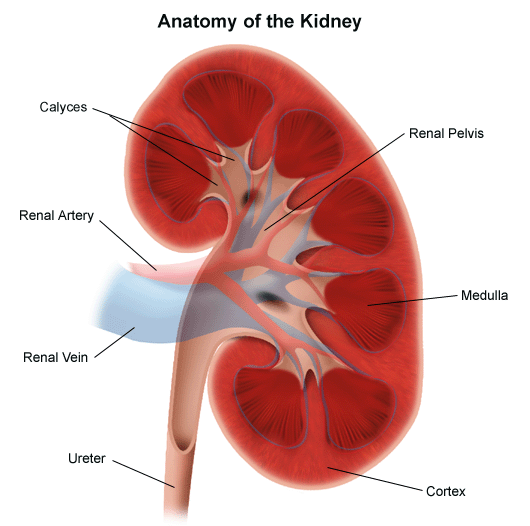
Kidney: 10 ways to take care of Kidney
-
Keep your blood sugar below 120 mg/dl -- Diabetes and high blood pressure are the two leading causes of kidney failure. A person with uncontrolled diabetes for 5-10 years may develop significant kidney damage. Consult your doctor and keep your blood sugar under control with diet, exercise and maintenance medicines.
-
Drink 8 glasses of water a day -- Doctors usually advise people to take in 8 glasses of water a day, but this really depends on your age and condition. If you're sweating a lot and work outdoors, you may need to drink more than 8 glasses a day. However, if you are above 65 years of age, you may do well with just 6 glasses a day. Drinking enough water also prevents the formation of kidney stones.
-
Watch your intake of pain relievers and other drugs -- Taking pain relievers like mefenamic acid, ibuprofen and the coxibs (like celecoxib) for a prolonged period of time may cause kidney damage. Because of this, we should limit taking these medicines to only a week, or just take them as needed. For those with chronic arthritis, try to look for other ways to relieve the pain such as using a hot water bag, pain reliever ointments, or the safer paracetamol tablet.
-
Be careful with tests and procedures using contrast dyes -- Some tests, like CT Scans and MRIs, and angiograms, use a contrast dye which helps doctors delineate the organs better. The problem with such dyes is that they can cause kidney damage. To be safe, I would strongly advise you to consult a kidney specialist before undergoing such procedures.
-
Don't drink too much Vitamin C -- Excess vitamin C (ascorbic acid) can lead to the formation of kidney stones in predisposed individuals. If you need to take vitamin C, a dose of 500 mg or less is safer.
-
Don't rely on food supplements to protect your kidneys -- The above tips are so far the best tips to care for the kidneys.
-
Get a kidney check-up --Simple tests, such as a complete blood count, BUN and creatinine, and a urinalysis are the first screening tests for the kidneys. Finding a trace of protein in the urine can alert the doctor of possible kidney disease. Bottom line is: Kidney diseases are expensive and difficult to treat. Let's take the necessary steps to protect our kidneys today.